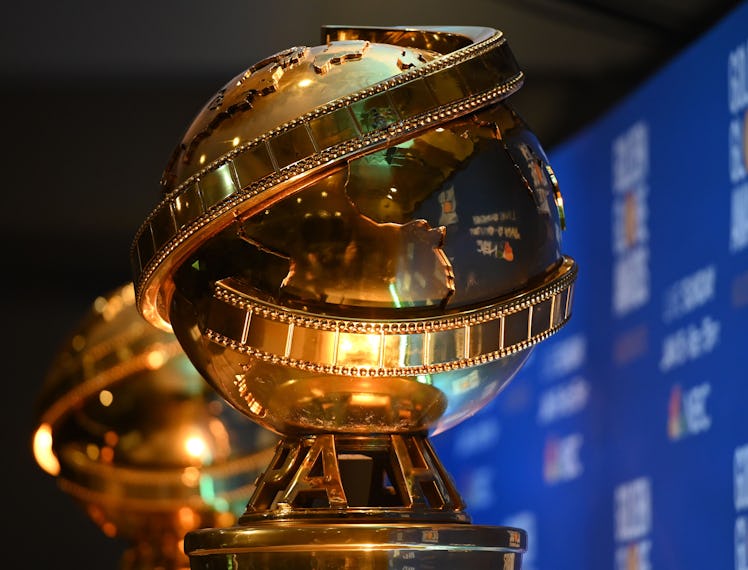NBC Won’t Broadcast the 2022 Golden Globes—What the Heck Happened?

To understand why NBC just canceled its broadcast of the 2022 Golden Globes, you first have to realize that no one ever really understood the Golden Globes in the first place. Presented by the shadowy Hollywood Foreign Press Association since 1944, the annual ceremony has a long history of controversy and questionable practices. In fact, this isn’t even the first time NBC pulled the plug on the ceremony (the broadcaster boycotted the ceremony from 1968 until 1974).
The organization’s status quo was not exactly a match for today’s values of diversity and transparency, and the final straw for much of Hollywood came in February when it was revealed the group did not include a single Black member. They’ve promised to change, but few outside the organization have seen any serious evidence of that yet. Netflix, Amazon, and Warner Media announced that they’d boycott the ceremony, and now NBC has gone ahead and pulled the plug on the broadcast for 2022.
“We continue to believe that the HFPA is committed to meaningful reform,” read an NBC statement. “However, change of this magnitude takes time and work, and we feel strongly that the HFPA needs time to do it right. As such, NBC will not air the 2022 Golden Globes. Assuming the organization executes on its plan, we are hopeful we will be in a position to air the show in January 2023.”
What is the Hollywood Foreign Press Agency, anyway?
The HFPA started back in 1943 with a pretty legitimate goal. Journalists in Los Angeles covering show business for foreign outlets felt they weren’t getting the kind of access and information their American peers were, so they bound together. Hollywood being the town of favors and egos it is, the HFPA started giving out awards in 1944 to up its profile.
Although it would take years for the ceremony to become an awards circuit mainstay, it established two traditions straight off the bat. It gave its first awards on January 1st, months before the Oscars. It also went all in that year on a movie called The Song of Bernadette, which received trophies for Best Picture, Best Actress, and Best Director. Two months later, the big winner at the Oscars would be a little movie called Casablanca. The Golden Globes had completely ignored it. The Globes have always made some odd choices.
This isn’t the first time NBC and the Globes have clashed
NBC was the first national broadcaster to air the Oscars back in the day, but lost the ceremony to ABC in 1960. In 1965, they decided to start airing the Golden Globes nationwide instead. It went well for a few years until the FCC got involved. There were allegations that the HFPA would only award those who showed up with trophies, and the Feds felt viewers were being misled. So NBC dropped the ceremony after 1968. It wasn’t broadcast at all for four years and then floated around the dial, including stints on CBS, TBS, and in syndication. NBC did not start broadcasting the ceremony regularly again until 1996—a move which ended up saving the Globes from near irrelevance. While NBC broadcasts the Emmys every four years in a unique broadcast-sharing plan among the networks, the Globes, otherwise, were NBC’s biggest awards show broadcast of the year (ABC currently has the Oscars, while CBS airs the Grammys).
What’s gone wrong now?
Even after the FCC scandal, the Globes’ history has long been intertwined with scandal and allegations of shady practices. It’s been suspected that members were easily influenced by lavish press trips, guarantees of access, or special events (see: the 1982 Pia Zadora scandal, the 2011 The Tourist scandal, or, more recently, head-scratching over Emily in Paris’s nominations). Hosts of the ceremony have even cracked jokes about it. The group’s membership has also always been secretive, and its rules about who, exactly, can be considered “press” are lax. For years, the Golden Globes have been a house of cards threatened by the breeze of change, but two major occurrences led to the latest round of questioning.
1) The Globes snubbed three Asian-American-led films, Parasite, Minari, and The Farewell, from Best Picture nods, citing specific rules. But no one really believed that, because no one really believes that the Globes actually honors its own rules in the first place.
2) It was revealed in February that not a single member of the HFPA was Black.
What changes are being demanded?
Over the weekend, the HFPA announced that it planned to double its membership over the next 18 months, with “at least 20” new members being added this year. It also expanded membership eligibility requirements to include journalists based outside of Southern California and proposed a new code of conduct that would forbid the acceptance of gifts and add more rules to what kind of promotional trips members can accept.
Still, the proposed reforms didn’t go far or fast enough for many advocates.
“The HFPA’s list of recommendations largely contains no specifics, no commitments to real accountability or change, and no real timeline to implement these changes,” read a statement from Time’s Up, according to The Hollywood Reporter. (Time’s Up wanted the HFPA to double its membership by the next ceremony, thus diluting the institutional power of its existing members.) “The HFPA’s proposed September 1 deadline for some—but not all—reforms comes well after the next award cycle will have started.”
“Even more striking is the complete silence from the HFPA about reforms to the deeply troubled nominations and awards process,” continued the statement. “This includes the absence of any commitment to ensure that the Golden Globe awards and categories are free from discriminatory criteria, that the practice of unprofessional, exclusive press conferences will end, or that voting members will perform the basic function of watching the nominated projects.”